There was a time when a man grew a beard on his face not because it was a part of the cultural zeitgeist, not because it was “hip” or “fresh” or “spoon” but merely because he was a man. And also shaving back in the day was a lot more of a hassle. (And also no, “spoon” is not a hip or fresh term, but maybe it should be. “Hey bro, that’s a spoon watch you’ve got there! Is it from Macy’s?” Keen, right?)
Related: Gift Guide for Bearded Men
The American Civil War lasted from April 12th, 1861 until May 9th, 1865. It was a savage conflict that almost rent our nation asunder and left three quarters of a million soldiers dead, with untold numbers of civilian casualties, as well. But from this darkest chapter of America history came a point of shimmering light: it was an era of glorious beards. And thanks to the frequent use of the relatively new medium of photography during the war, we have an invaluable record of many of the best beards of the Civil War.
Now, I won’t deign to say I or anyone else can create a ranking of the greatest beards of the Civil War; that would be an almost impossible task, so numerous were the wonderfully hirsute soldiers of that wretched war. But I can say with confidence that the whiskers we’re showcasing today deserve to live on in memoriam as much for the gallantry of the men who grew them as for their innate quality.
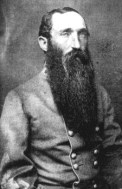
Albert G. Jenkins may have ended up on the wrong side of history, serving as a representative if the First Confederate Congress and subsequently as a Brigadier General in the Confederate States Army, but during his 33 years of life, he did manage to grow a beard that stretched down below his sternum, and for that we can all salute him. Few other men will live so short a life yet leave so strong a legacy of beard as he. OK, aside from the notable exception of Jesus, I suppose, who was also purportedly bearded.
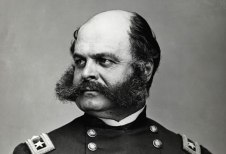
Any man who has ever stroked his sideburns with pride and thought: “These are lovely sideburns I have” has Union general Ambrose E. Burnside to thank for he term. His epic facial hair proved once and for all that a man could sport a glorious beard while still revealing his chin. Burnside survived the war (despite a rather mixed record as a commander) and continued to sport his stunning chops well into his later years, though he wasn’t all that old when he kicked off, passing away at the age of 57. And hey, here’s a weird little tidbit: Burnside was the first president of the National Rifle Association.
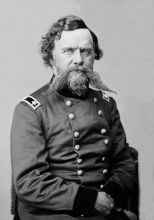
Before serving as a general officer in the Union Army, Alphas S. Williams attended Yale University and earned a law degree. During the war, he had a horse named Plug Ugly. Later, he served as a congressman. And while all that is fine and good, the important thing here was what grew off this man’s lips. During the Civil War, Williams sported what would be considered by both the standards of his day and ours a regular old beard. But the broad, beautiful mustache with which he topped that beard puts Yosemite Sam to shame. (Hell, it might have inspired the cartoonist behind Sam, a man named Friz Freleng, in case you were wondering.)
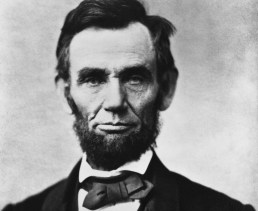
Alright, look: the fact is that, objectively speaking, Lincoln’s beard wasn’t all that remarkable. It wasn’t even all that good, if we’re being honest with ourselves, at least compared to some of the dashing beards of the day. But the story behind the president’s beard (apparently a little girl advised him to grow it, for those of you who somehow don’t know that already) and the fact that he was Abraham F—ing Lincoln, the man who held the nation together, damn well earns him a spot on this list.
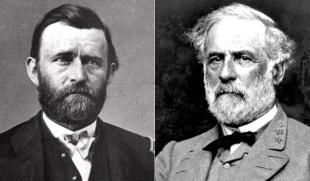
One of the great ironies of the American Civil War is that the leading military officers of the opposing sides sported almost identical beards (though that of the Confederate commander was of a hoarier cast). Ulysses S. Grant and Robert E. Lee were both able commanders and each noble in their way (though “noble” must often be taken to mean “drunk” in the case of Grant), and each sported a thick and full though never unruly beard. Many prominent historians have argued that Grant’s and Lee’s shared affinity for a well-maintained beard ultimately helped bring about the resolution of the war, or at least they could argue that if they wanted to.



